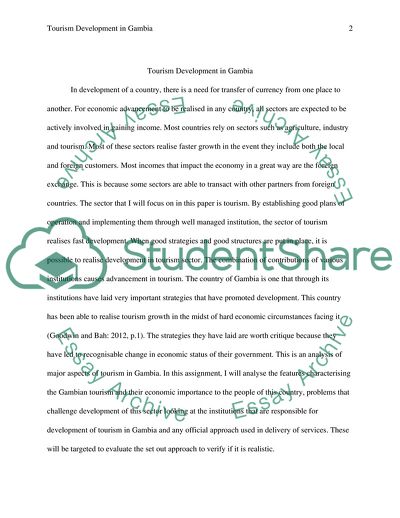Cite this document
(A Critique of Tourism Policy and Planning in The Gambia Coursework, n.d.)
A Critique of Tourism Policy and Planning in The Gambia Coursework. Retrieved from https://studentshare.org/tourism/1792036-a-critique-of-tourism-policy-and-planning-in-the-gambia
A Critique of Tourism Policy and Planning in The Gambia Coursework. Retrieved from https://studentshare.org/tourism/1792036-a-critique-of-tourism-policy-and-planning-in-the-gambia
(A Critique of Tourism Policy and Planning in The Gambia Coursework)
A Critique of Tourism Policy and Planning in The Gambia Coursework. https://studentshare.org/tourism/1792036-a-critique-of-tourism-policy-and-planning-in-the-gambia.
A Critique of Tourism Policy and Planning in The Gambia Coursework. https://studentshare.org/tourism/1792036-a-critique-of-tourism-policy-and-planning-in-the-gambia.
“A Critique of Tourism Policy and Planning in The Gambia Coursework”. https://studentshare.org/tourism/1792036-a-critique-of-tourism-policy-and-planning-in-the-gambia.


